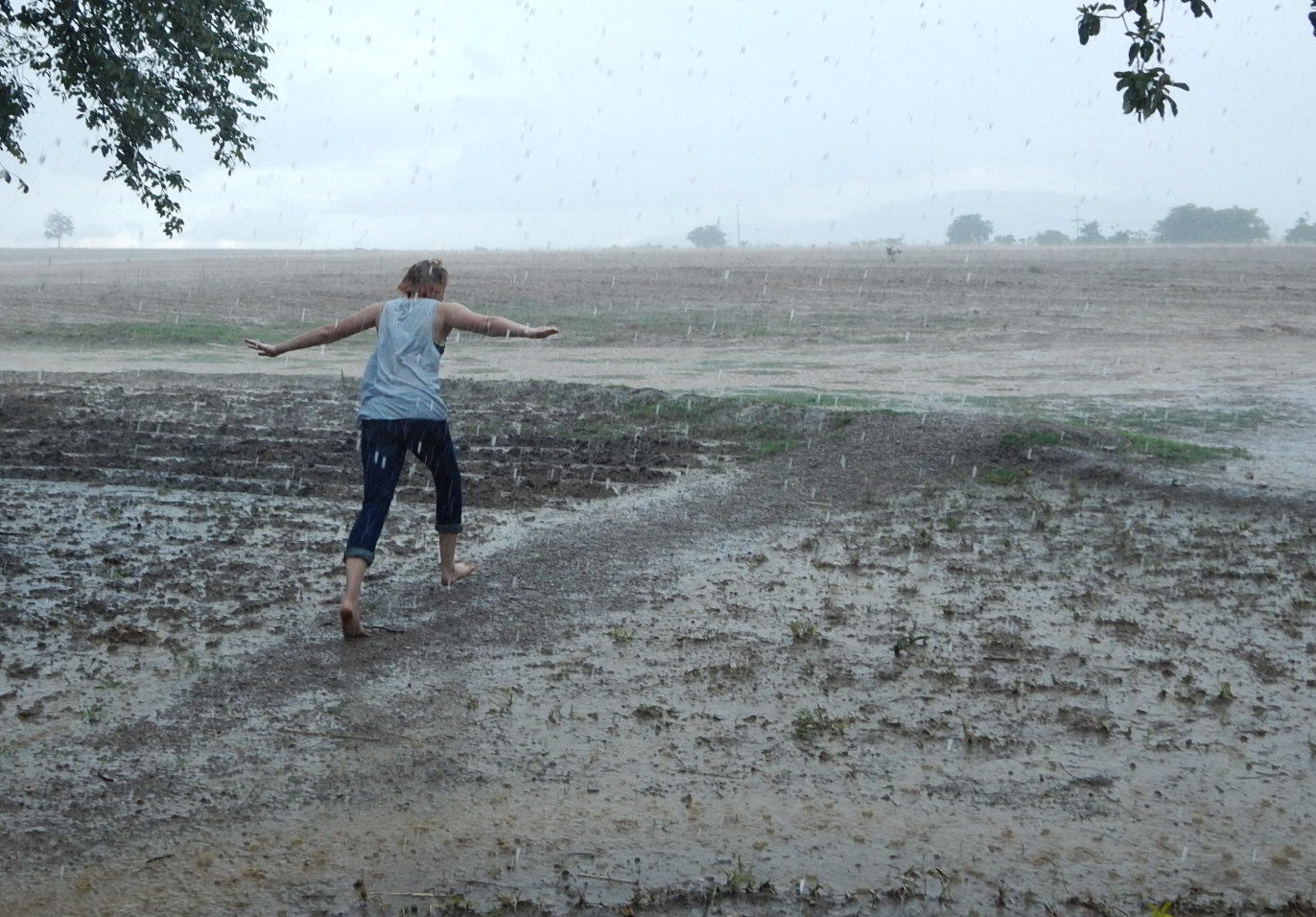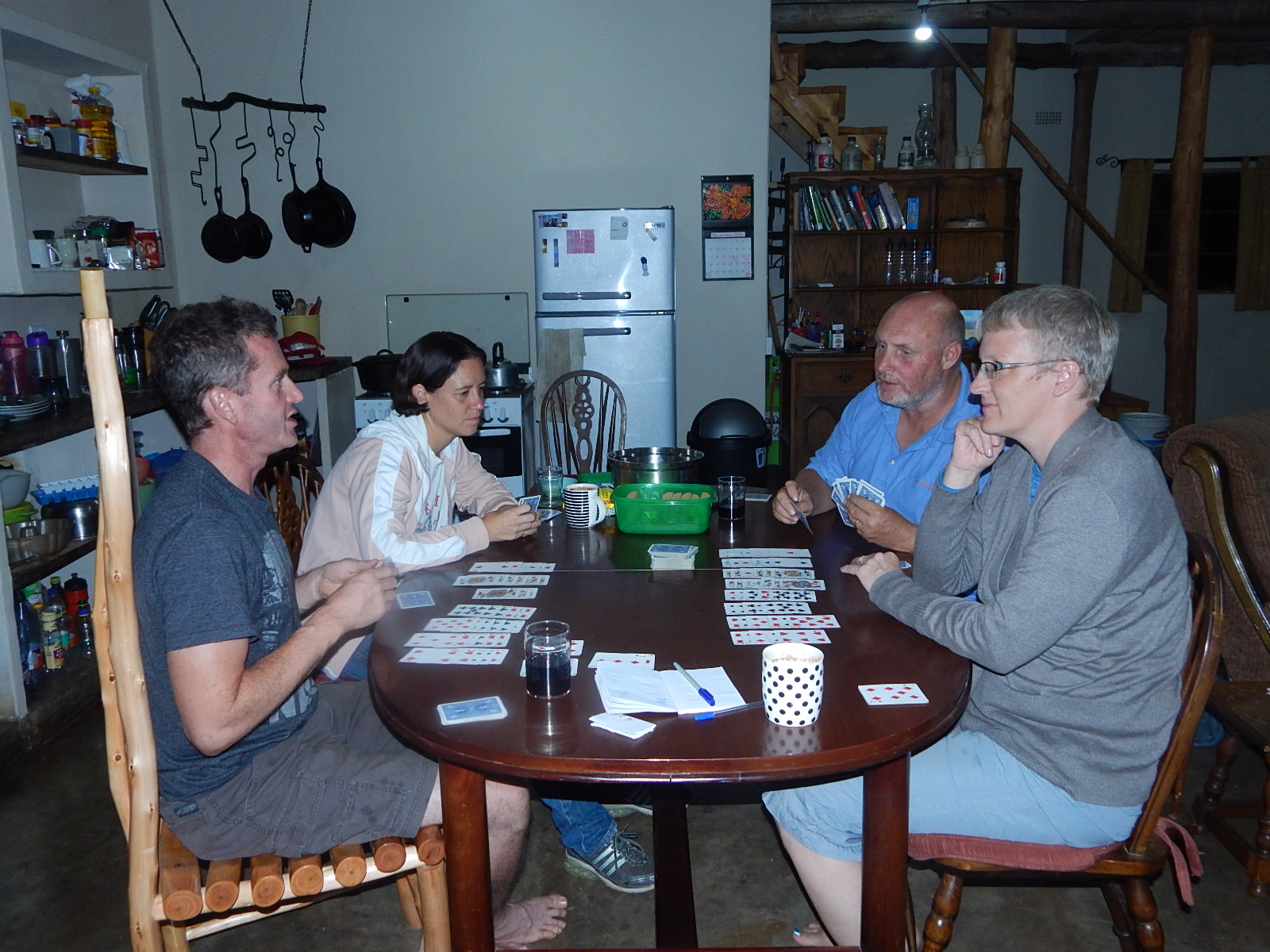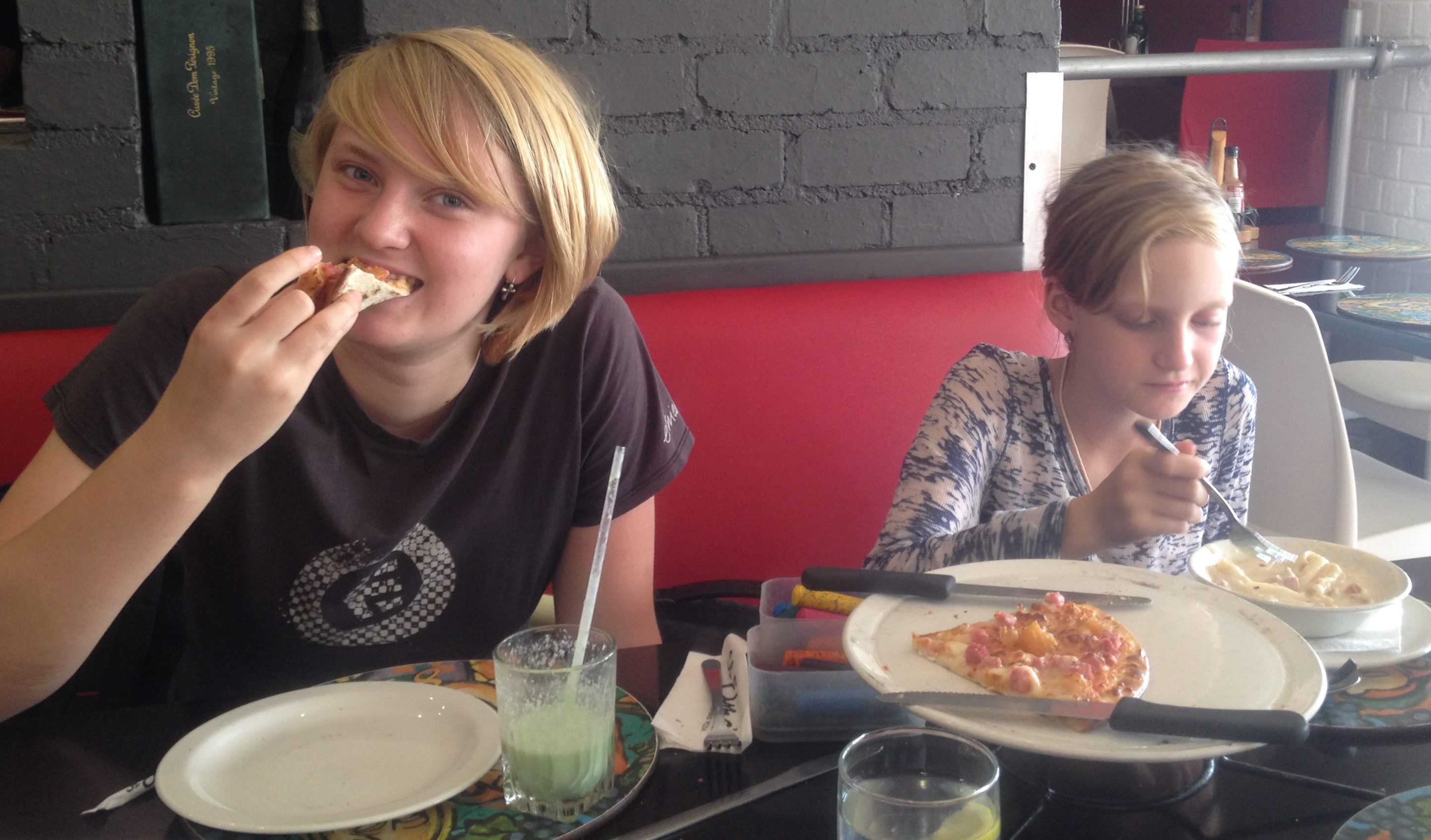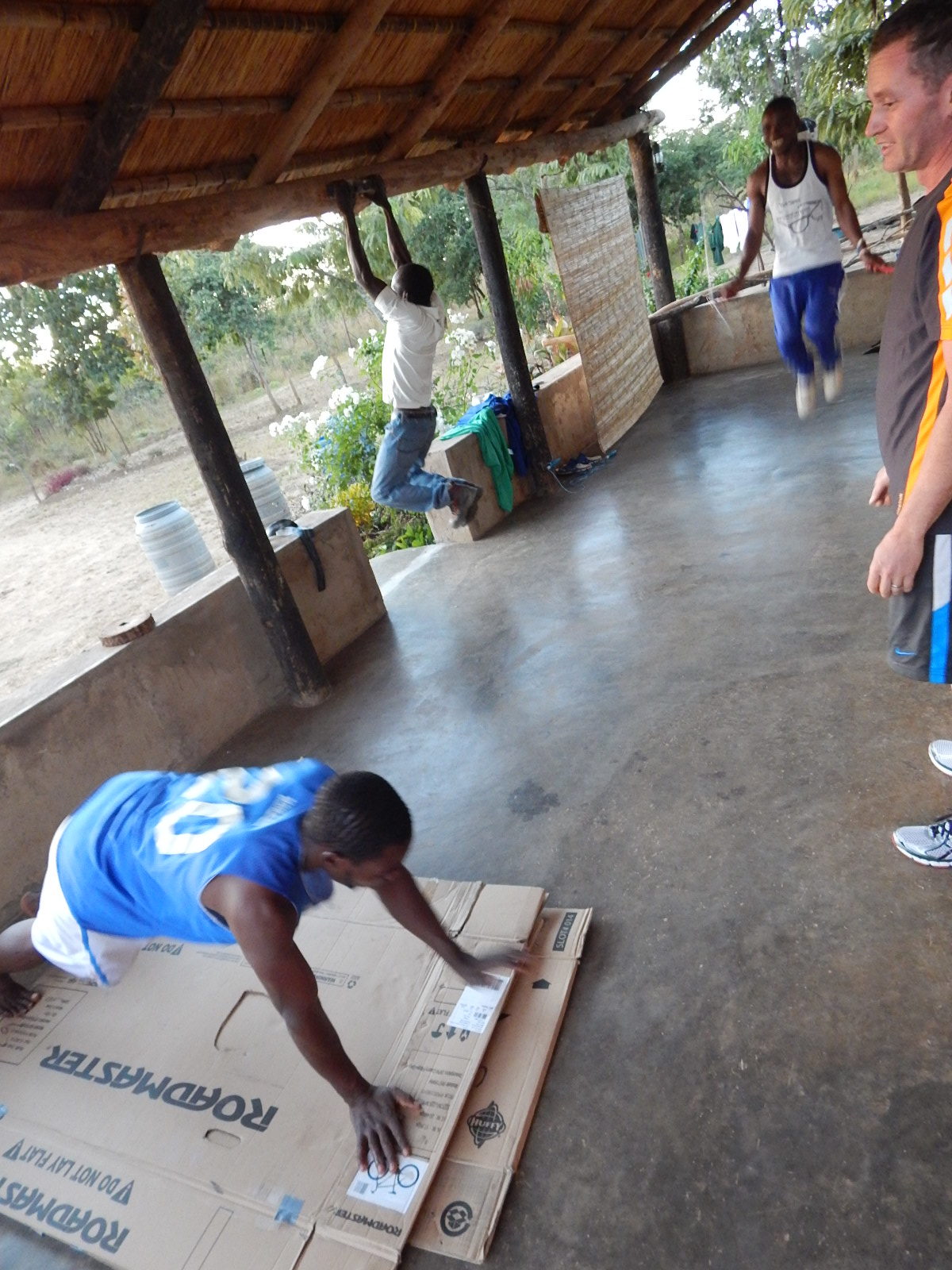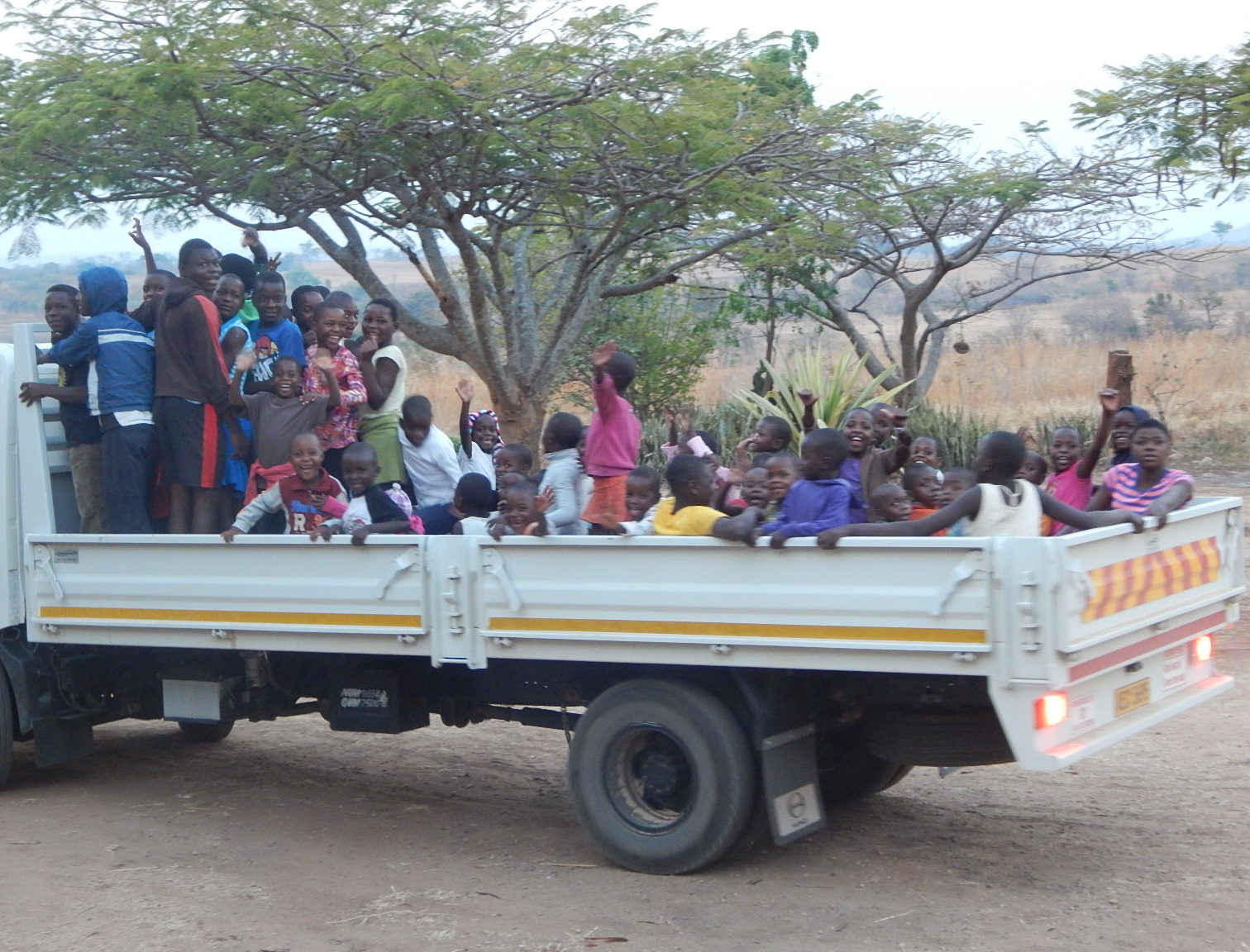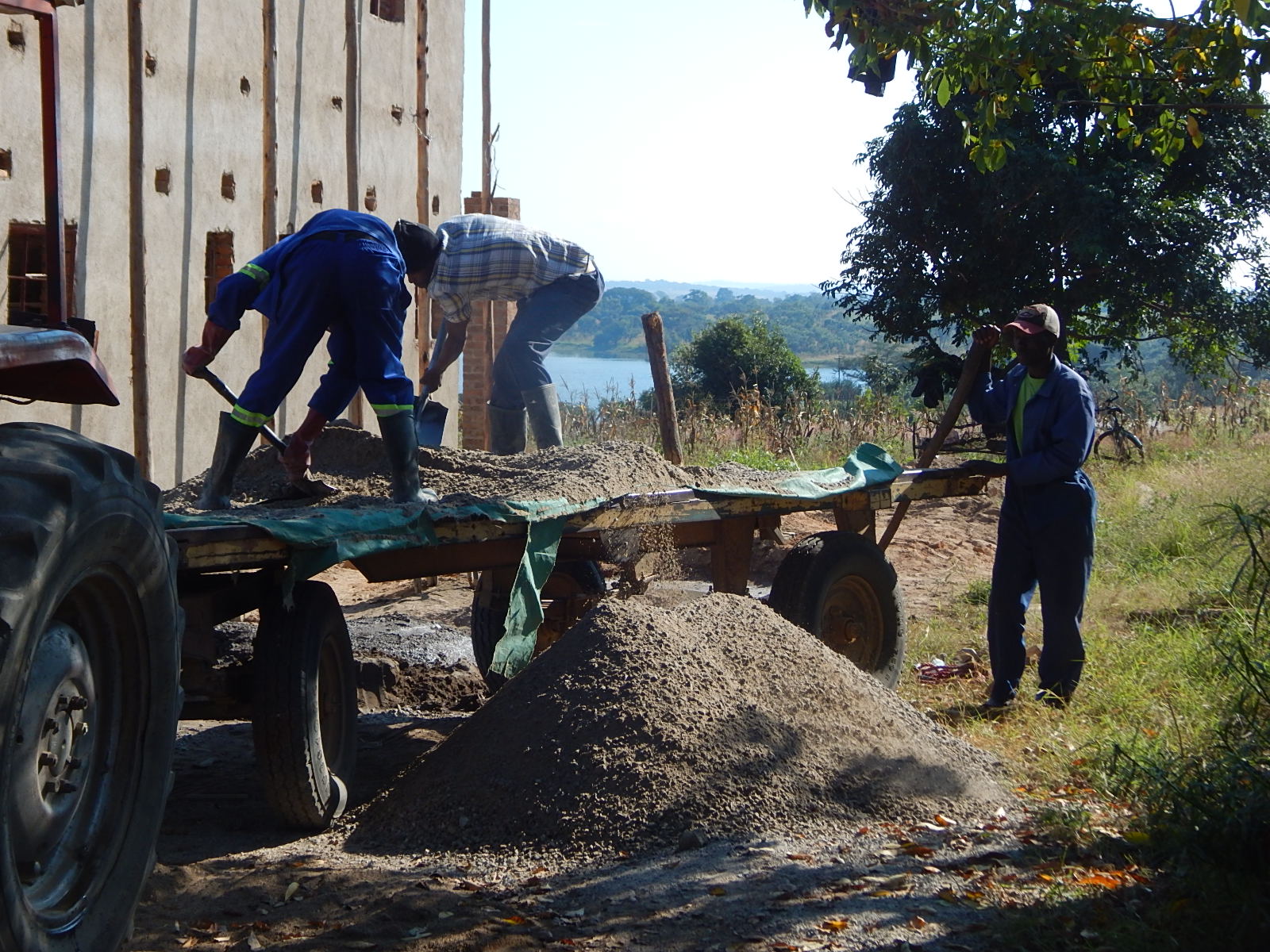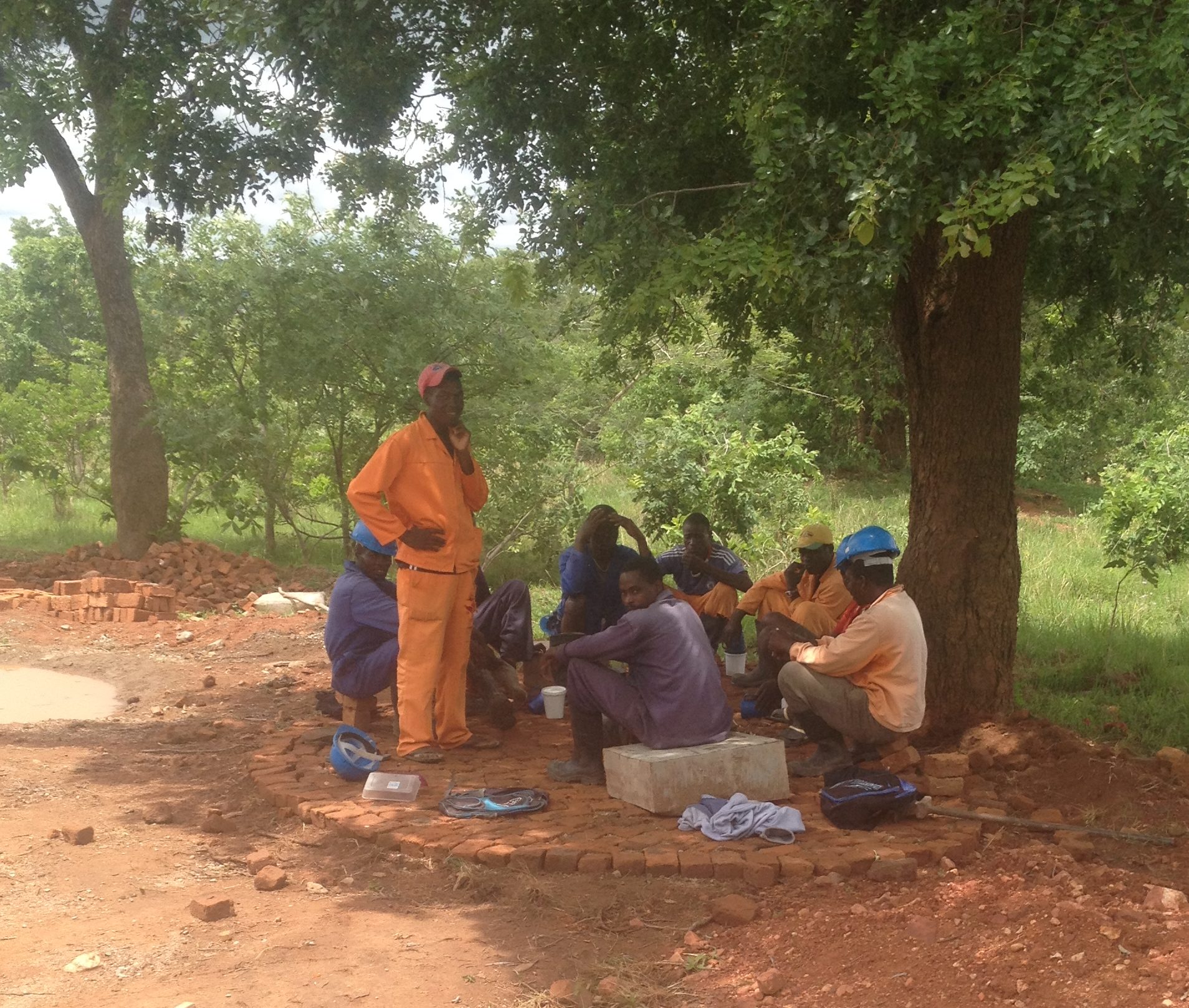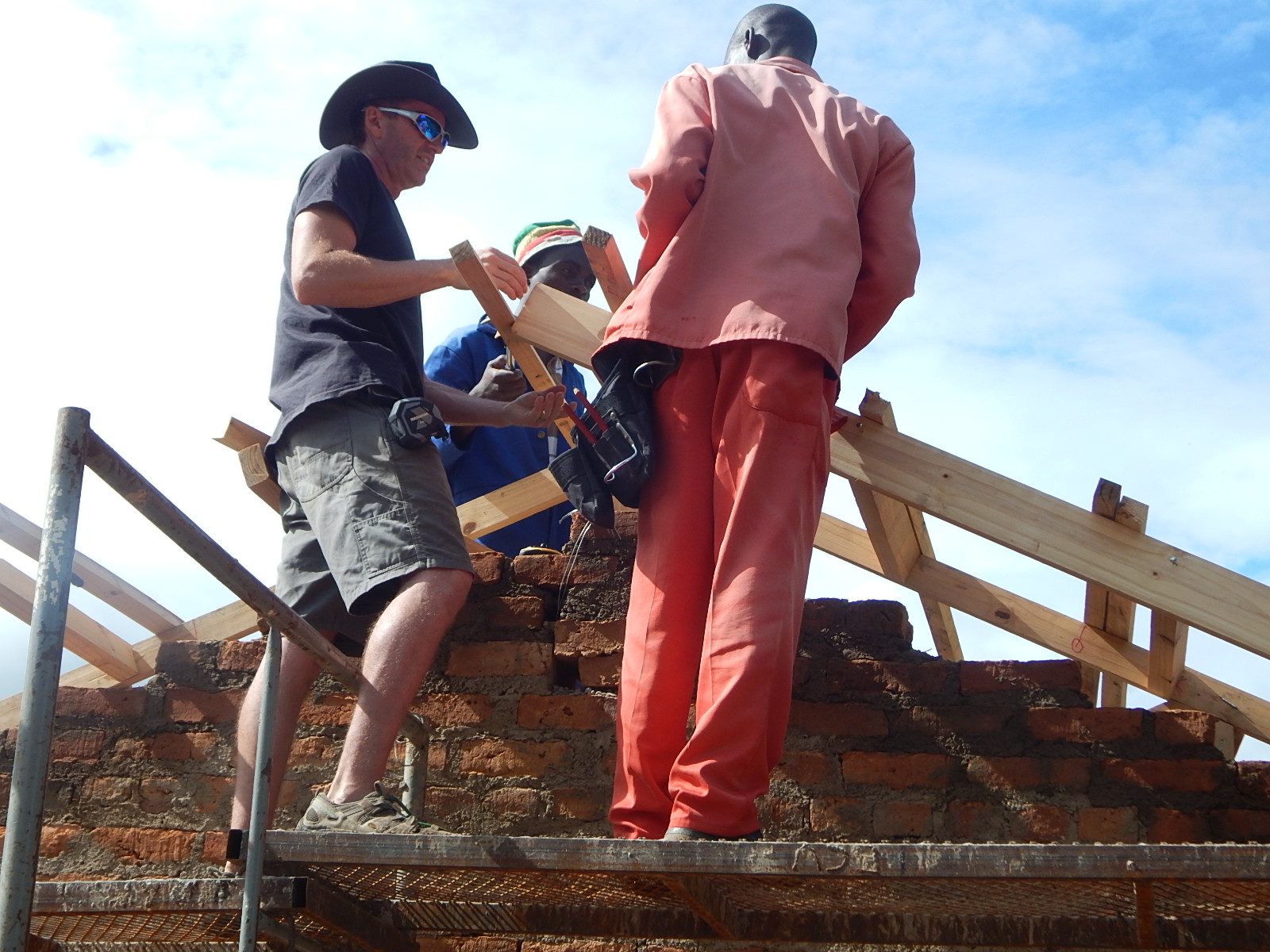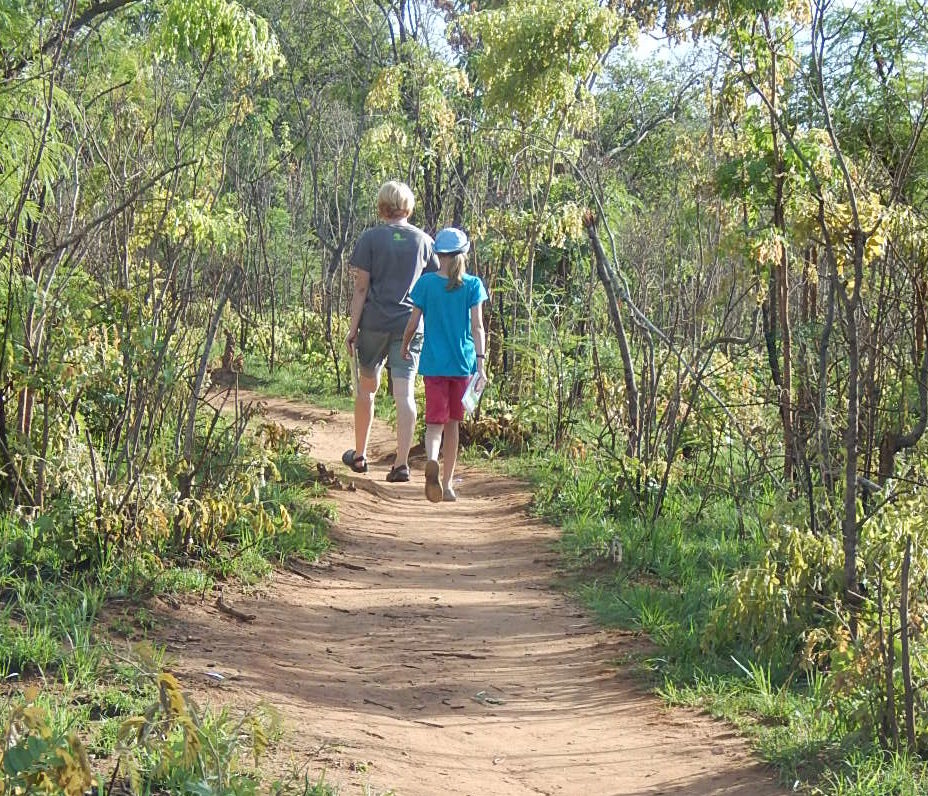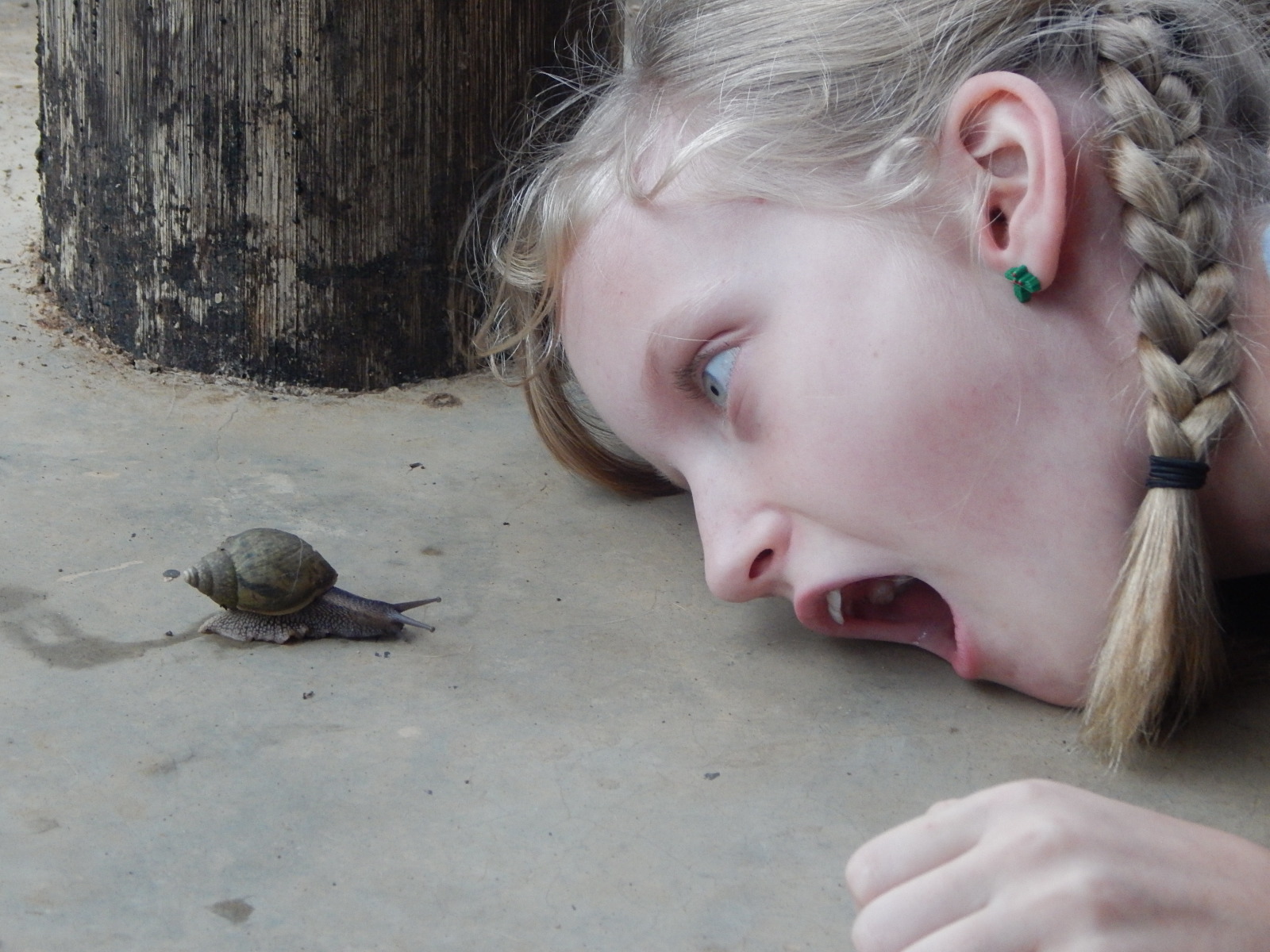
The rains bring out the insect life. One day we were walking to the farm and as we walked through the grass flying ants flew up by the thousands. We had no idea what they were or why they hadn’t been there yesterday. We were told what they were and that the Shona people collect them and eat them and apparently they taste buttery. I tried one and they were right. Millipedes the size of hot dogs were everywhere. Snails crept up the walls of houses, leaving gross trails of goo and poop on the walls. We felt like we were living through the plagues of Egypt. It felt like each day introduced a different new bug. I made screens for our windows, but the doors are always open and the bugs find their ways into the house, so you just get used to living with insects on the walls and flying around the lights.
The rains stop around March and until till they start again in November there won’t be a drop of rain. Every day is perfectly dry and great working weather. I never had to plan a job around the weather like I did in Canada. It’s funny how you can complain about perfect weather, though. You get to the point when you wish for weather of some sort. Winter in Zimbabwe was a great break from winter in Canada. It goes down to around 7 degrees Celsius at night and to mid 20’s in the afternoon. I wore jeans to work for a month, then back to shorts. We have a fireplace in the house, but it doesn’t work well because the chimney is so tall and the wind blows the smoke back into the house, but we use it regardless. It warms up the downstairs, but you don’t feel any benefit upstairs. Houses are built with wall vents and the windows are not airtight or double pane, so it gets as cold inside as out. We still found it funny to see people wearing puffy down coats and toques, when we were in sweaters or t-shirts. One of the builders, Alfred, would wear a bright pink hat with ear flaps tied tight over his head and I couldn’t help but tease him about it. We did acclimatise though, and would feel cold at 15 degrees.
